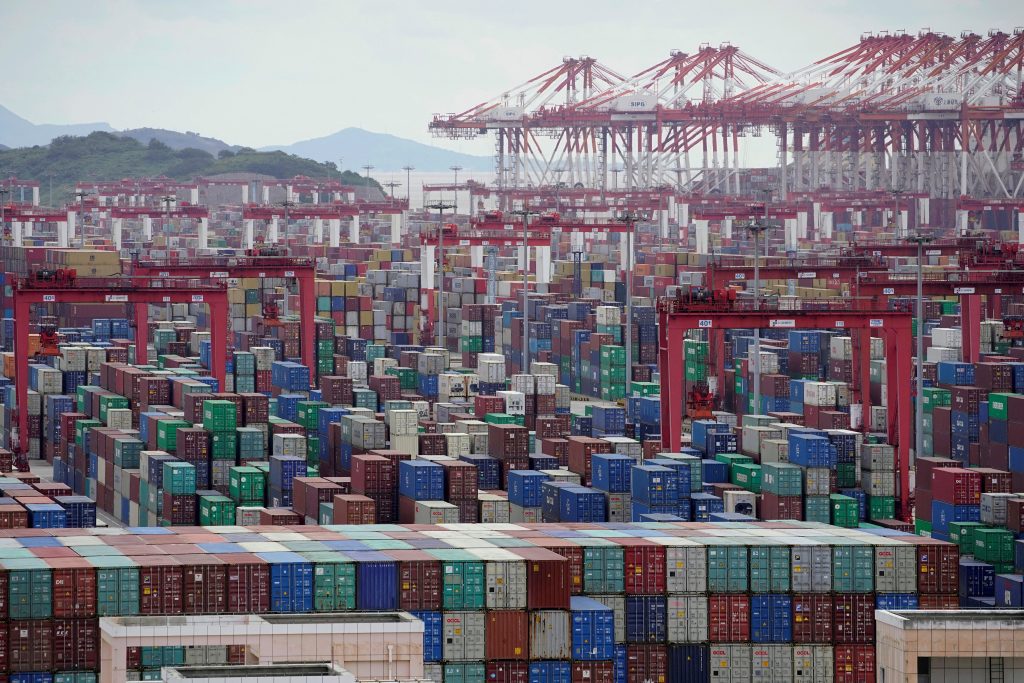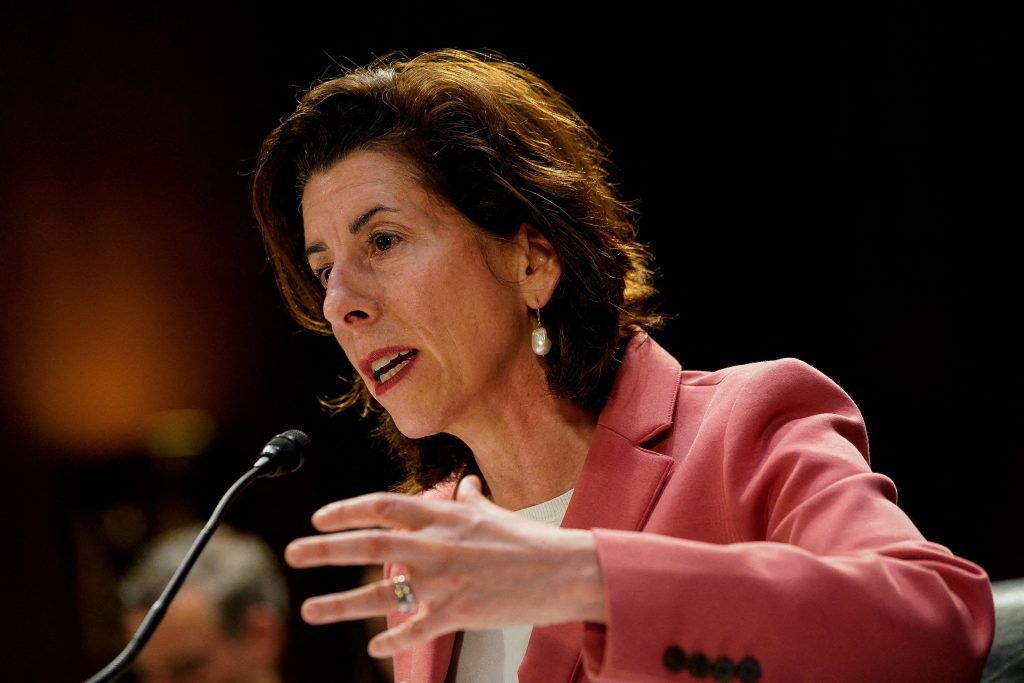
WASHINGTON – U.S. Commerce Secretary Gina Raimondo visits China for four days starting Sunday, aiming to boost business ties between the world’s largest two economies even as the Biden administration has taken a series of steps to prevent exports of sensitive American technology.
Raimondo has repeatedly said the United States does not want to “decouple” from China, but also noted she has aggressively placed Chinese companies on an export control list.
“There’s a lot of benefit to doing business (with China) where we can. Having said that, we have to protect what we must, and be eyes wide open about the threats and strategic competition,” Raimondo said in July.

Tensions are high as the United States works with allies to block China’s access to vital equipment needed to keep its chip industry competitive and Beijing restricts shipments from prominent U.S. firms like planemaker Boeing and chip company Micron Technology.
Ahead of Raimondo’s arrival in Beijing on Sunday, several recent announcements from the U.S. have likely pleased Chinese officials. On Tuesday, China welcomed the U.S. decision to lift export control restrictions on 27 Chinese entities, saying it is conducive to normal trade between Chinese and U.S. firms.
And on Wednesday the United States said it is seeking a six-month extension to a decades-old science and technology agreement with China, a deal Chinese officials have expressed a desire to extend.
The two biggest economies in the world used to be each other’s largest trade partners, but Washington is now trading more with neighboring Canada and Mexico, while Beijing is trading more with Southeast Asia.
The visit comes after a blitz of intense diplomacy over several months by U.S. President Joe Biden’s top aides aimed at easing tensions between Washington and Beijing.
Officials are hoping to see concrete signs of progress in the relationship, in potential areas ranging from trade to climate, in time for a potential face-to-face meeting between Biden and Chinese counterpart Xi Jinping before the end of the year.
The semiconductor chip industry is eager to protect its profits in China as the Biden administration considers another round of restrictions on chip exports to China. Last year, China accounted for $180 billion in semiconductor purchases, more than a third the worldwide total of $555.9 billion and the largest single market, according to Semiconductor Industry Association.
Raimondo in May said the United States “won’t tolerate” China’s effective ban on purchases of Micron memory chips and is working closely with allies to address such “economic coercion.”
Raimondo said in July the Biden administration is seeking to carefully target U.S. controls on exports to China, but rules will cost firms some revenue.
Restrictions should not be so broad “that you deny American companies revenue and China can get the product elsewhere, or China can get the product from other countries,” Raimondo said. Rules “will deny some revenue to American companies, but we think it’s worth it.”
One big open question is when will China resume deliveries of Boeing 737 MAX passenger jets. Raimondo, who has spoken to Boeing executives on numerous occasions, said in 2021 the Chinese government was preventing its domestic airlines from buying U.S.-manufactured Boeing airplanes.
“There’s tens of billions of dollars of planes that Chinese airlines want to buy, but the Chinese government is standing in the way,” she said.
Raimondo’s trip may be the last face-to-face interaction between top U.S. officials and their Chinese counterparts ahead of Vice President Kamala Harris’ Sept. 4-7 trip to the ASEAN meetings of Southeast Asian countries, Biden’s Sept. 7-10 trip to India for the Group of 20 meetings and the annual gathering of world leaders at the United Nations later in September.
On the sidelines of those meetings, Biden and Harris are expected to spend time wooing neighboring countries anxious about China’s assertive posture in the Indo-Pacific and declining economy.
Inside Telecom provides you with an extensive list of content covering all aspects of the Tech industry. Keep an eye on our News section to stay informed and updated with our daily articles.